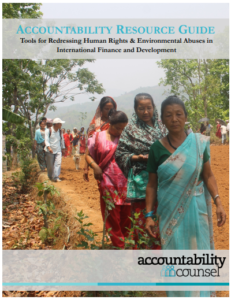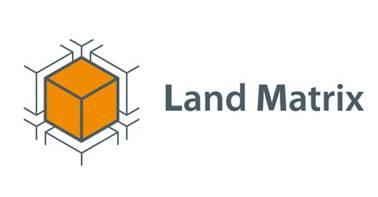Accountability Resource Guide: Tools for Redressing Human Rights & Environmental Abuses in International Finance and Development
This guide provides information for communities who are, or who may be, harmed by projects sponsored by financial institutions, development banks and private groups. It is intended to assist community leaders, lawyers, and non-governmental organizations (NGOs) in determining what rights communities have and how they may access accountability mechanisms when those rights have been or may be violated.
These tools may be used where a project has harmed communities or resources on which they depend or when there is fear of harm in the future.



